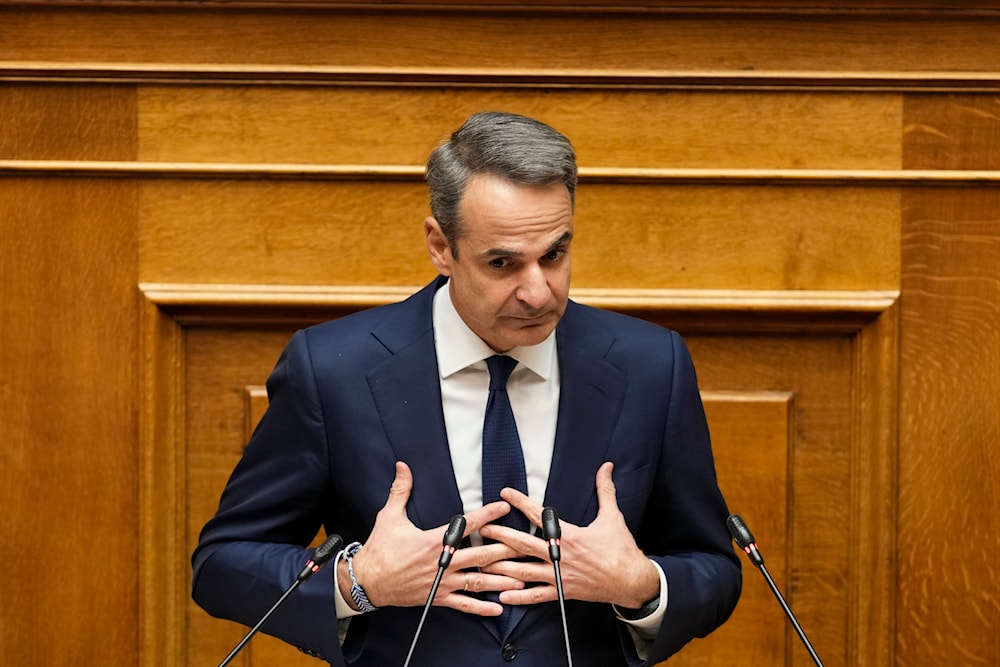Minimum wage in Greece to be raised to 830 euros from April 1
Greek prime minister announces a 50 euro increase in minimum wage and reveals his actual average salary and minimum wage targets to be reached by 2027.
-

Greece Prime Minister Kyriakos Mitsotakis speaks during a parliament session in Athens, on Thursday, March 28, 2024. (AP)
Greek Prime Minister Kyriakos Mitsotakis said today that the minimum wage in the country will be increased by 50 euros(54$) to 830 euros per month from April 1.
In a cabinet meeting, Mitsotakis announced "From April 1, in a few days, those who receive the minimum wage will receive 830 euros a month. We are talking about an increase of 50 euros."
He added this increase will "pull up" the payments of many benefits related to the minimum wage as it includes increases in 18 other benefits, varying from unemployment and seasonal work benefits to maternity benefits.
Mitsotakis also emphasized "I would like to recall that when we took office, the minimum wage in 2019 was 650 euros. It has increased by 27%. After the increase in public sector salaries, after the increase in pensions, we are taking another step in implementing our program commitments," further pointing out that during his government's term, this will be the fourth increase in the minimum wage.
The Greek prime minister revealed that his goal is to reach by 2027 an average salary of 1,500 euros and a minimum wage of 950 euros.
PM Mitsotakis stated that despite a ten-year crisis, Greece is leading the EU in GDP growth per capita.
"It should be noted that in 2023 GDP per capita showed the highest growth among the 27 EU countries. Obviously, we are not yet where we want to be, because we are bearing the burden of a decade-long crisis. But no one can doubt that the general course of the economy and the course of income growth are moving in the right, positive direction," the prime minister said at a cabinet meeting.
On a different note...
Greek opposition parties launched on March 24 scathing allegations against the government, accusing it of tampering with evidence to shape public opinion regarding the nation's deadliest train disaster.
Amid mounting pressure, opposition leaders have vowed to push for a no-confidence vote in parliament.
The controversy stems from a report published in a March 24 newspaper, which claims that the government distributed edited recordings of train personnel to sympathetic media outlets.
These recordings were allegedly altered to reinforce a narrative implicating human error as the primary cause of the collision that claimed the lives of 57 individuals in February 2023.
Nikos Androulakis, head of the socialist PASOK party, declared, "There is only one way: a censure motion."
Echoing this sentiment, the main opposition Syriza party has demanded the resignation of Prime Minister Kyriakos Mitsotakis, while the leftist New Left party pledged its support for the impending censure motion.
Subsequent endorsements from the Communist KKE party and the nationalist Hellenic Solution party have bolstered the opposition's stance.

 3 Min Read
3 Min Read








